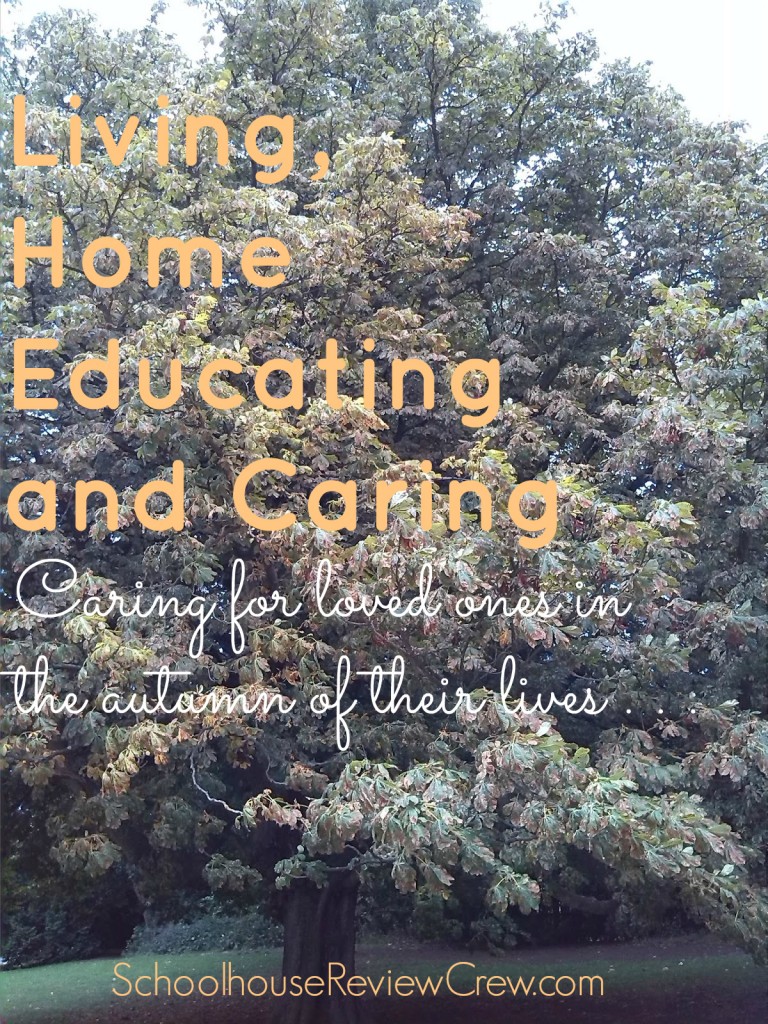As the population gets older, more and more people will become adult caregivers. This will and does, include those of us who home educate. This post is about the joys and challenges of caring for someone in the autumn of life whilst home educating.
Why be an adult caretaker?
Most older people would prefer to live in their own homes but, for many, there comes a point at which this isn’t possible. For some people this means going into a care home or sheltered accommodation but others are able to live with family so they can have extra help from family members, usually the middle generation.
Historically, many families have had three generations living together and for many if not most, this is a happier option than living in a care facility.
For Christians, there are commands to care for older relations. These don’t exclude caring for someone in a care home but for many families, may mean having an older relative move in.
Things to consider
- Is this arrangement going to work? It is easy to say that you don’t intend Grandad to go into a care home but harder if he wanders, is aggressive or takes an hour to feed per meal.
- Is there space?
- This will mean extra work-definitely. Think twice if you are already over stretched. Having an extra mouth to feed is usually fairly simple, although a special diet can add to this but there are doctor’s appointments, medication to collect and possibly supervise, extra laundry and cleaning, tactful supervision, extra items to buy with the shopping even without any element of personal care. Do think about having paid adult caregivers if personal care is needed. It takes longer to wash and dress an older person than a toddler! Adding personal care into running a busy household and home educating may be just too much.
- Someone who needs care is unlikely to be able to provide any meaningful help and certainly not to babysit, although getting a babysitter becomes difficult as most people want to look after children and not Granny.
- Holidays can become complicated. If you are considering having an older parent live in your home and you have siblings, get them to agree to help with holidays before the arrangement starts!
- Finances-it isn’t unfair to ask someone extra living in the house to contribute. If they are not able to care for their own finances, then legal advice needs to be obtained.
- With proper care, regular family meals and proper supervision of medication, if necessary, health can improve.
- Grandchildren and grandparents will be much closer than would otherwise be the case.
- An older person can be helped to attend church and other events when they would otherwise be unable to do this.
- A vulnerable older person can be protected from fraudsters who prey on such people.
- For the middle generation, it can seem as though there is nothing but hard work. Yet, God can use the difficulties and hard work to make us rely on Him and sadly, often, to show us the sin in our own attitudes and how much we need His mercy and grace.
Despite the challenges, caring for an older relative can be an experience that helps the whole family to grow together.

